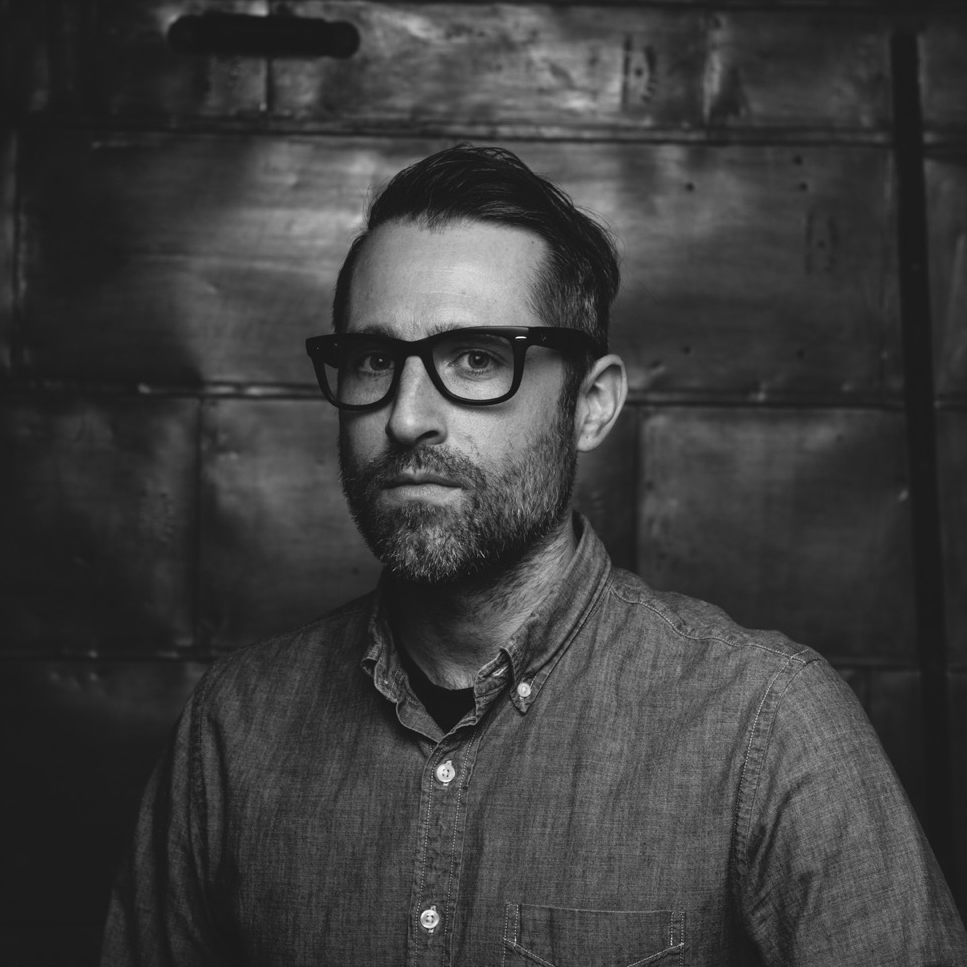Pagan Metal Roundup: Primordial
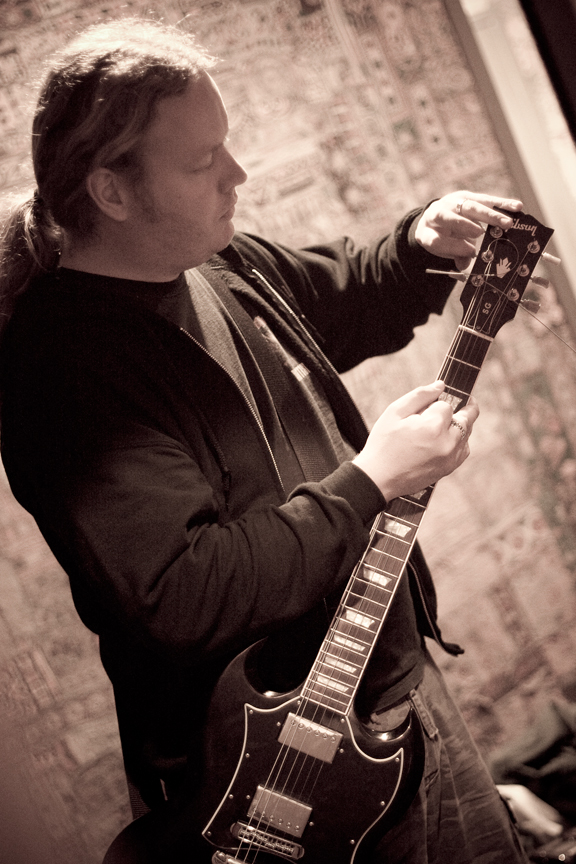
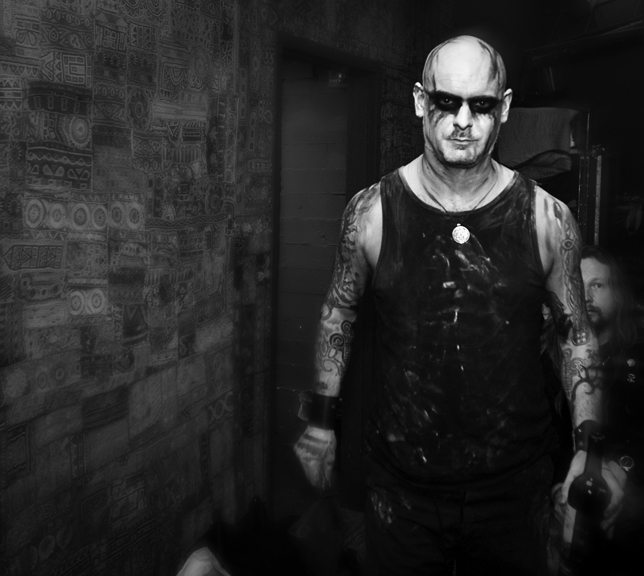
When the popular Paganfest II tour rolled through New York last spring, featuring Korpiklaani, Moonsorrow, Blackguard, Swashbuckle and Primordial, we caught up with Ireland's heathen metal cult Primordial.
In the following Q&A, Primordial guitarists Ciáran MacUiliam and Michael O'Floinn explain what sets them apart from the folk metal pack, and why being Irish gives them the upper hand in what they do.
By Brad Angle. Main photos (and following gallery) by Sarah Sturges.
This is a paganfest tour. What the hell is pagan metal?
MacUILIAM Well, there isn’t much of a difference between folk metal and pagan metal other than folk metal using more traditional instruments and instrumentation and pagan metal having more of a feeling with nature and being in the woods. Folk music is a strange hybrid between pure traditional folk music and heavy metal music and it doesn’t make sense to me sometimes, but that’s the way it goes.
O’FLOINN The main difference is that folk metal incorporates a lot more traditional instruments whereas pagan metal might incorporate more of the feeling and the atmosphere.
MacUILIAM When we play with black metal bands, we’re not black metal enough and when we play with folk metal bands, we’re not folk metal enough. We’re just doing our own thing. When we’re writing songs, I try and bring a lot of heart and adrenaline into the songs. My influences are nature and traditional Irish music but I only use the droning bits to make that really epic sound. The timing is also very true to traditional Irish folk music – we use 6/8 a lot as opposed to 4/4 as in a lot of traditional rock and metal stuff. 6/8 is very common in traditional Irish music and we use it a lot so it’s getting kind of repetitive. [laughs]
Get The Pick Newsletter
All the latest guitar news, interviews, lessons, reviews, deals and more, direct to your inbox!
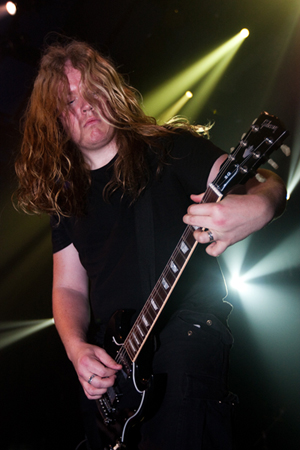
Our roots were black metal and when we started, around 1992, we were very influenced by doom and black metal but even back then, we were doing things differently that most people.
O’FLOINN A lot of people call Primordial a “dark” metal band, which is another genre that mixes black and doom metal. There are also a lot of people who call us pagan metal but it doesn’t matter really, what we’re called.
As far as lyrics and themes go, what are some pagan subjects that you explore in your music? Do you feel a spiritual connection with the music?
MacUILIAM It’s an instinct, you know? It’s more of a feeling than anything. You just can’t pack it and sell it. I don’t want it to be throwaway music. I suppose there is spirituality in there somewhere but I’m not going to go down that path.
O’FLOINN And the lyrics don’t really deal with nature. The music and lyrics don’t mix until the studio so I suppose there is some sort of influence from nature in the music but the lyrics don’t exactly deal with it.
MacULIAM I’m from Dublin and he’s [O’Floinn] from Cork. When I was growing up, I was exposed to a lot of traditional music as well as traditional Irish duties. My parents were from the countryside so I was around the landscape, the seascape, the rain and all of that. It’s kind of a grimy atmosphere so when I write I can definitely draw connections.
O’FLOINN I’m from Cork but I also lived in the countryside and it definitely influences the music, for sure.
What made you first pick up a guitar?
MacULIAM I started playing guitar when I was around 11. My brother had a guitar and I’d always used to borrow it from him. The first metal influence for me was AC/DC’s If You Want Blood You’ve Got It album. After that I got hooked on to Metallica, Anthrax, Slayer and all of that stuff during that time.
When we were first writing songs, we were already listening to death and doom metal bands of the time and then the Swedish death metal came along. Soon after, we were already developing our own style. When we were listening to the first demos, we knew we wanted something really traditional and out of place, so we put a tin whistle in there.
O’FLOINN I started when I was around 12. I was into thrash metal at the time, listening to bands like Megadeth, Slayer and Anthrax. Then the black metal bands came along, like Bathory, and at that time it was really easy to get caught in the moment. [laughs]
MacULIAM I had amateur lessons from a girl up the street for about an hour every Saturday but that lasted for about 6 months. I wasn’t interested in what she was showing me.
O’FLOINN I had an acoustic guitar lying around and I just picked it up and learned a few chords while playing it. I played classical guitar for a while which really helped with the technique and the music stuff but that was about it.
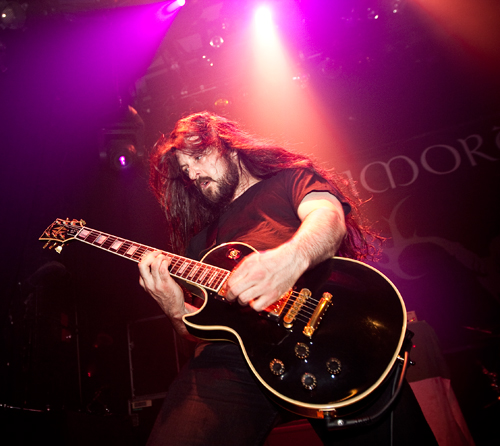
What metal guitarist most influenced your style?
O’FLOINN Tony Iommi is a big influence for me.
MacULIAM It used to be James Hetfield, more than Kirk, but these days my style is so different. If I was still a kid, I’d say James Hetfield for sure. When I write songs, I usually write them on an acoustic – adding all of the open notes to create these sounds – and transferring it to electric. So that was our style from very early on, and Qourthon from Bathory played a huge role in influencing that.
As a player, what technical requirements are needed to make this music?
O’FLOINN Not many. [laughs] We’re not that technical or flashy.
MacULIAM If you’re coming from a pure metal stage, you won’t have much of a problem.
O’FLOINN The strumming rhythms are very committing. We strum a lot of 8th notes in 6 and most metal riffs are downpicked. A lot of the triplet patterns are hard.
MacULIAM A good knowledge of bar chords is also helpful. We use a lot of full chords and sometimes we tune the E string to D to get that droning sound. So basically, we hit 2 D’s.
O’FLOINN Knowing how the place octaves is another big thing. We use a lot of octaves in the leads.
MacULIAM Moving the octaves up and down the neck with some delay effect makes the sound really big.
One characteristic that distinguishes pagan metal from black metal is the use of instruments that aren’t traditionally associated with extreme metal. What odd instruments do you employ?
MacULIAM I also play the kazookie and mandolin but you can put me hands on anything. A few years ago, me and our old bass player, our drummer and Mick played in a pub playing old Irish music. I played banjo and kazookie and Mick played Mandolin and the tin whistle was a whole ‘nother ball game.
O’FLOINN It isn’t that difficult to play these instruments since they have such little notes but it’s easy enough to be bad. [laughs]
Traditional Celtic drumming plays a significant roll in your sound. This was originally war music, right?
MacULIAM Yeah, that’s more of our drummer’s territory. He comes from that background with the drumming. He uses the toms a lot, as well, so he can bring the sounds on to the stage.
What guitar technique/approach makes you stand out from the pack?
MacULIAM Just the droning sounds…
O’FLOINN And the full chords, which really makes the music dense. Having 2 guitars playing them really makes a difference.
MacULIAM Just playing variations of different chords on an acoustic to figure out new sounds.
What piece of gear is crucial to your sound?
O’FLOINN The guitars definitely. We both use Gibson and I use a Les Paul Custom ’82.
MacULIAM I use an SG. It’s great for touring, it’s light-weight and if it broke it isn’t too expensive to replace.
O’FLOINN And we have an endorsement so that’s great.
MacULIAM We use the Boss pedals’ effects loop. We haven’t exactly figured out what to bring every time.
O’FLOINN We keep the effects to a minimum but the delay is important. We use the Boss DD-2.
MacULIAM The compressor is there to clean up the clean sounds and the EQ is for boost. We just try to keep it simple. Usually at festivals we just bring a distortion box.
O’FLOINN For this tour, we’re using ENGL amps. What we want from an amp head is a really good clean sound more than the heavy sound. We can’t bring our own amps overseas and when we travel due to costs so we just use what we’re given.
MacULIAM When I want a clean sound, I want a clean sound. That’s important.
O’FLOINN The Marshall JCM2000 is the best head because the clean sounds are crystal-clean and the crunch is great.
MacULIAM I definitely need versatility in an amp, for sure.
Pagan metal seem to have representatives in many different cultures: U.S., Finland, Ireland, Norway, among others. Is the scene filled with people that have strong nationalistic allegience?
MacULIAM For this tour, we put up our flag on stage just to distinguish ourselves from the rest of the bands. We don’t do that very often. We’re not British. Being Irish is important for the music because it reflects the songs.
O’FLOINN And if you listen to a song like “The Coffin Ships”, it deals with Irish history and not really a nationalistic feeling. All of our themes are universal where everyone can relate to.
MacULIAM But I would say being Irish is definitely important for the music. The lyrics are different but for the music itself, it’s important.
O’FLOINN The Irish influences really show in the music and I think Ciarán even borrowed some stuff from The Chieftains.
MacULIAM And a few albums back we did an old Irish song for a cover.
What’s up with the costumes?
MacULIAM Yeah, and that’s just for entertainment. We prefer to come out wearing black and our singer likes to put on the make-up. We’re not very specific. We do what we want and the singer does what he wants. [laughs]
The movement is just getting going. Where do you see it heading?
MacULIAM To be honest, a lot of the newer bands coming out are influenced by the happy, beer-drinking bands and it’s going on for a while, but it’s not where I’d like to see it go. Most bands go to the Ensiferum type of school where we went somewhere else. It needs to be serious sometimes, you know?
O’FLOINN Moonsorrow is more like us, coming from a more melancholic and darker place. This scene is definitely smaller.
Recommended Traditional Folk/Pagan Artist/Album
MacULIAM The first 4 Chieftain albums from the late 60s, Planxty… a lot of the Irish music is local so it’s hard to say.
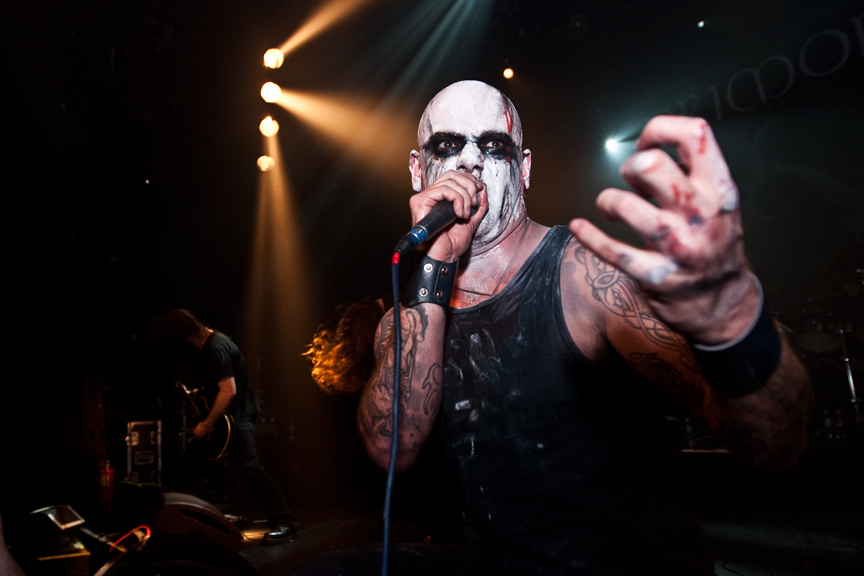
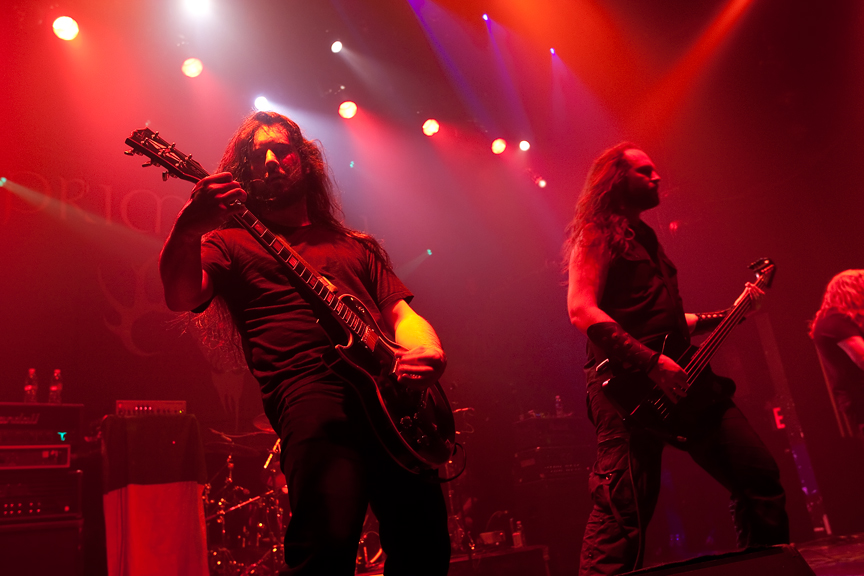
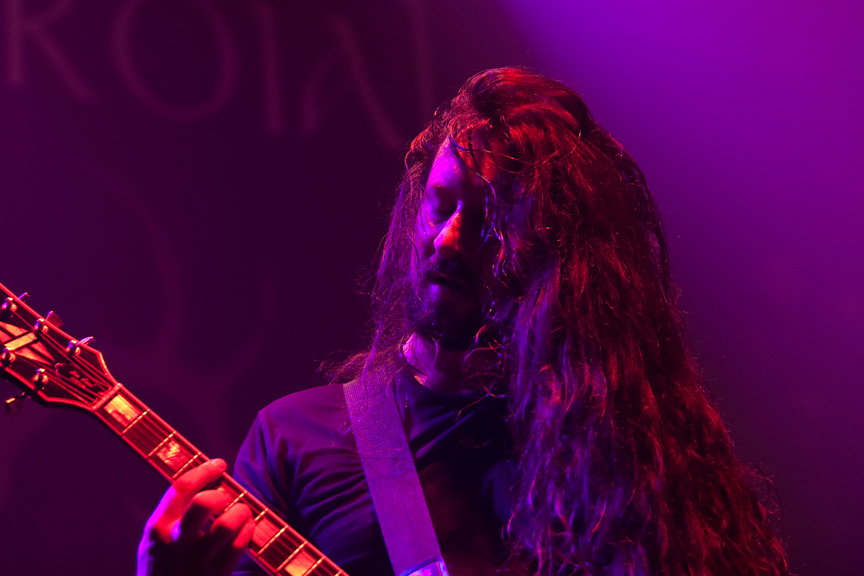
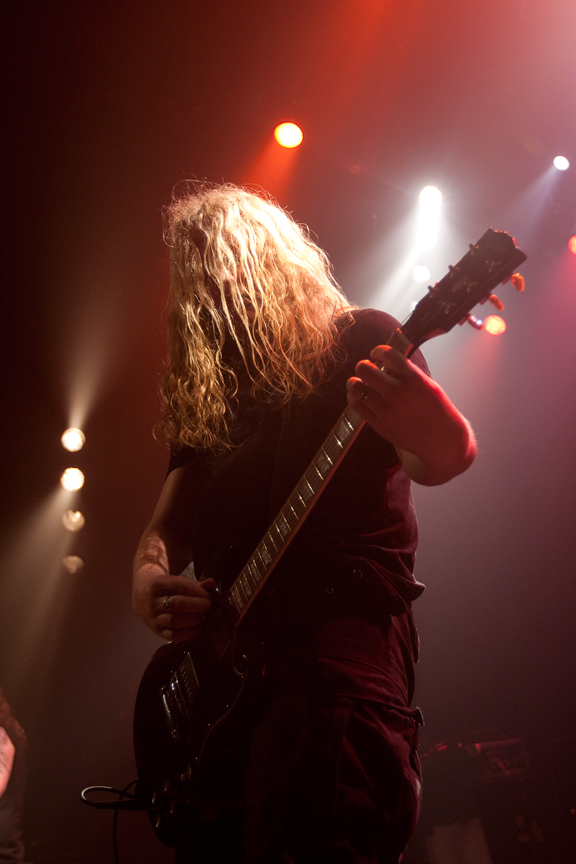
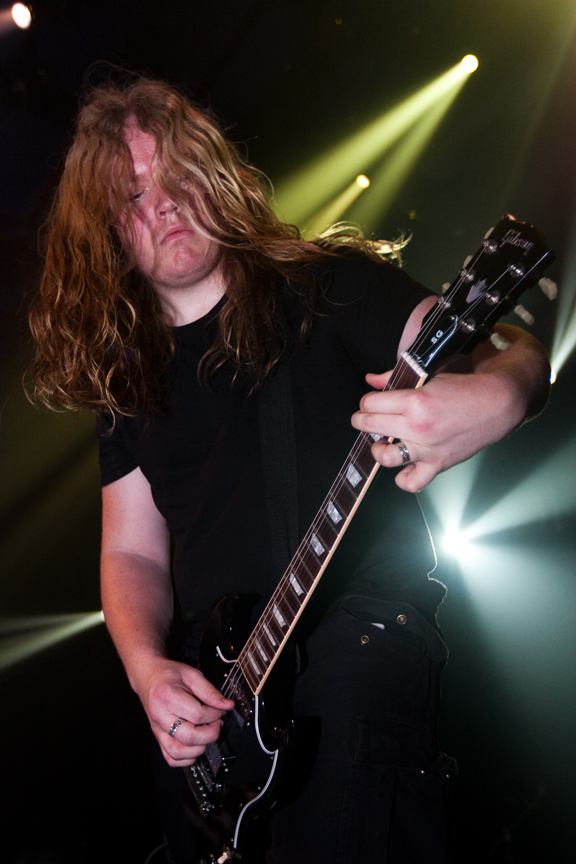
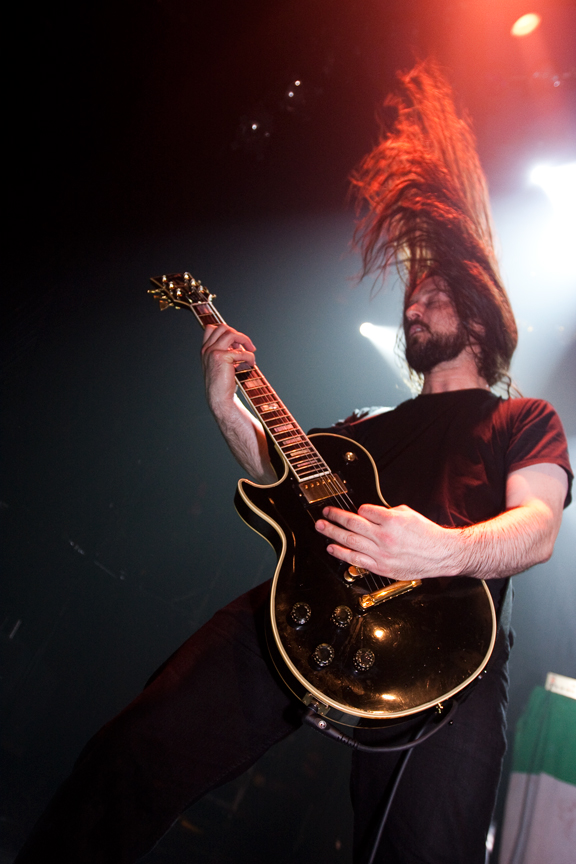
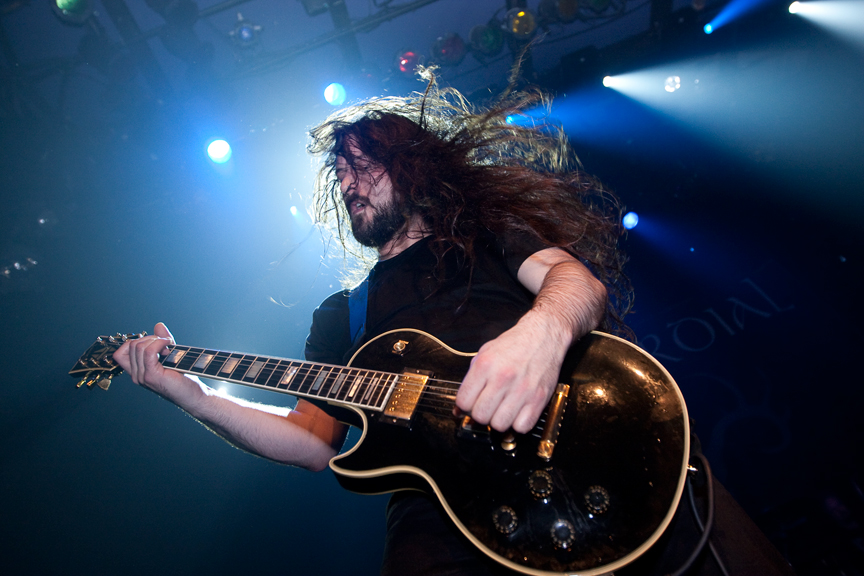
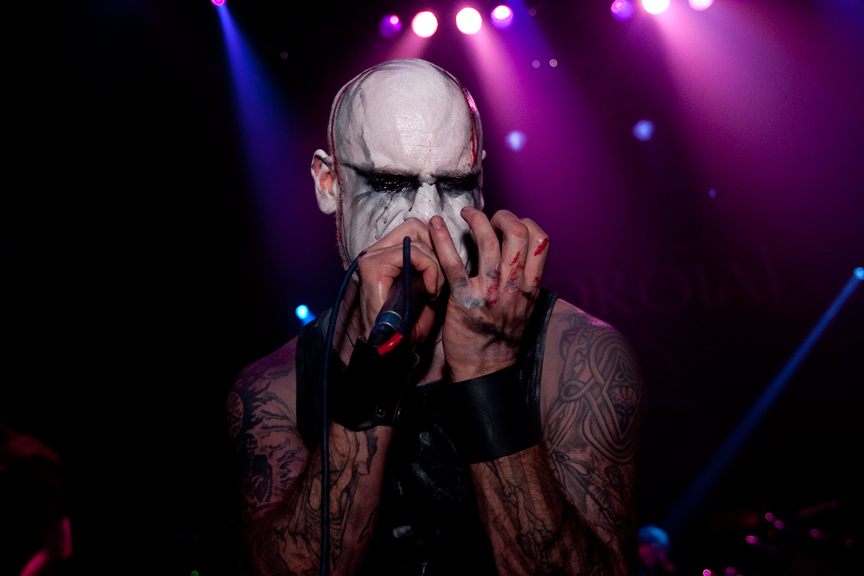
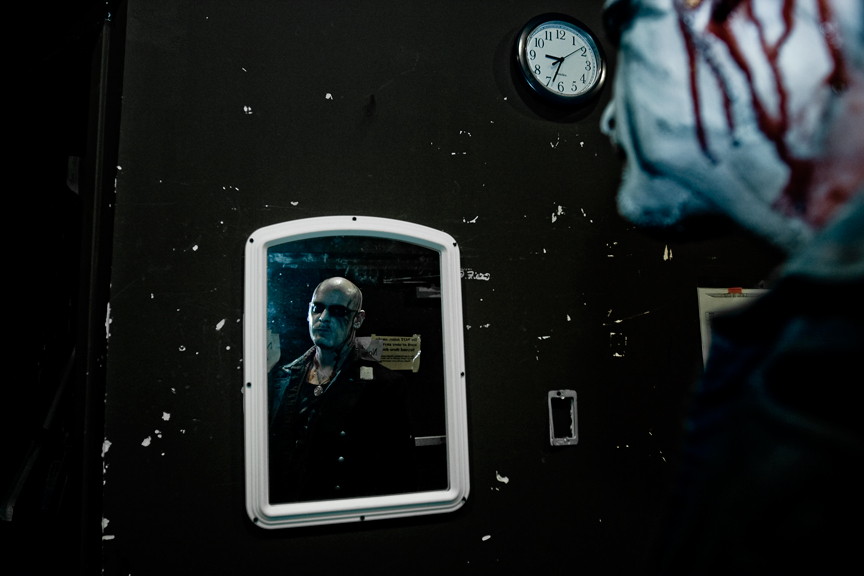
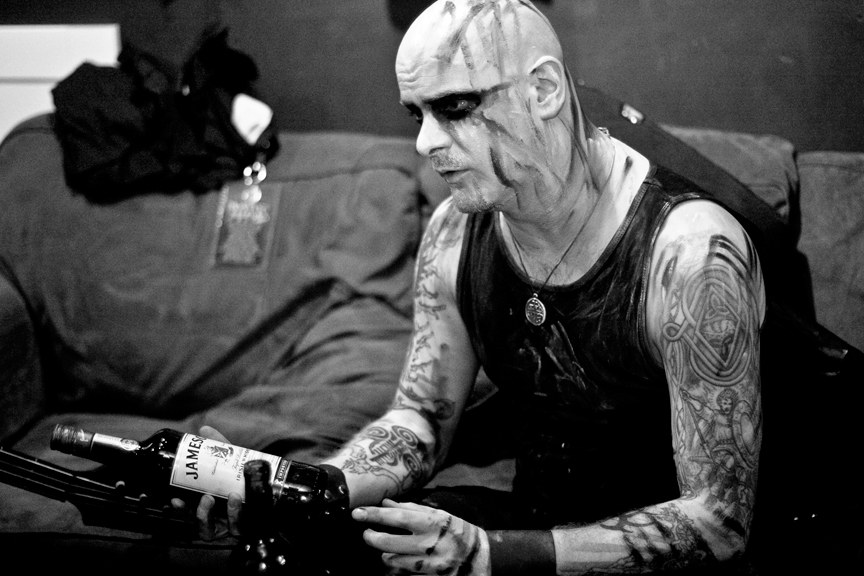
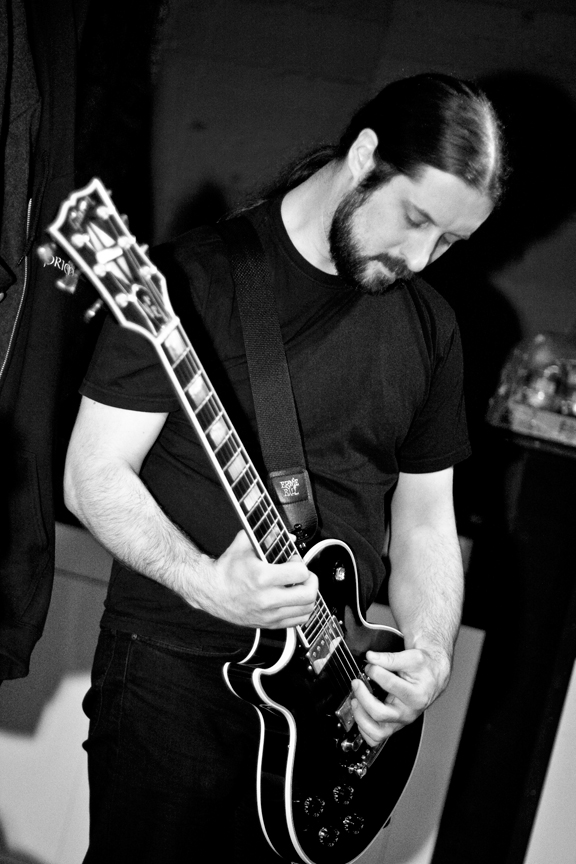


Brad is a Brooklyn-based writer, editor and video producer. He is the former content director of Revolver magazine and executive editor of Guitar World. His work has appeared in Vice, Guitar Aficionado, Inked and more. He’s also a die-hard Les Paul player who wishes he never sold his 1987 Marshall Silver Jubilee half stack.
“Even the thought that Clapton might have seen a few seconds of my video feels surreal. But I’m truly honored”: Eric Clapton names Japanese neo-soul guitarist as one to watch
“You better be ready to prove it’s something you can do”: Giacomo Turra got exposed – but real guitar virtuosos are being wrongly accused of fakery, too
